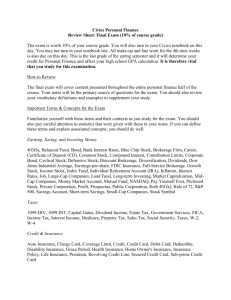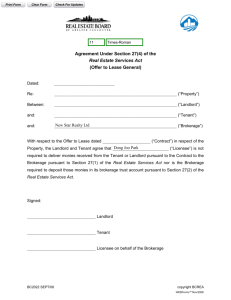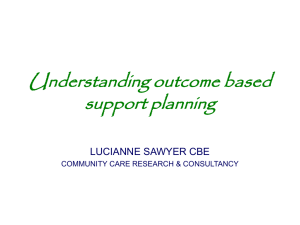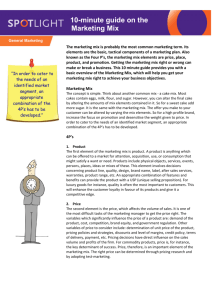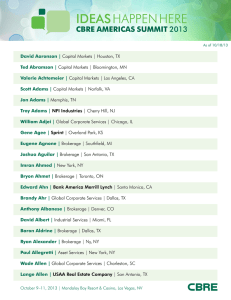Useful Books on Information Brokerage
advertisement
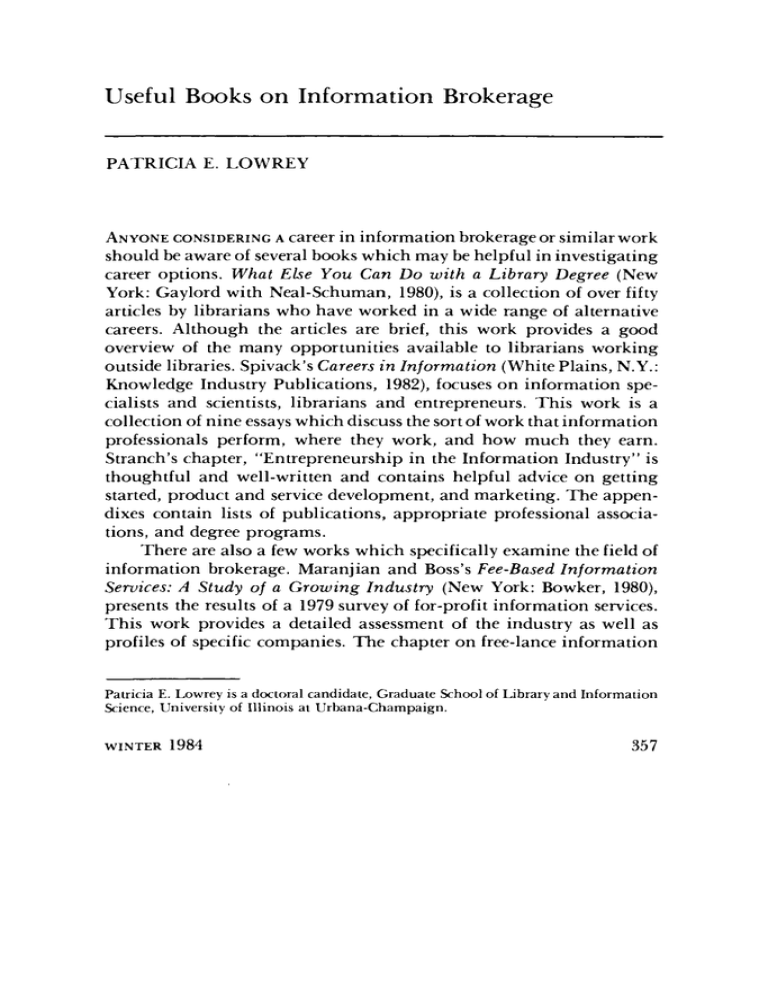
Useful Books on Information Brokerage PATRICIA E. LOWREY ANYONEC ONSIDERING A career in information brokerage or similar work should be aware of several books which may be helpful in investigating career options. W h a t Else You Can Do w i t h a Library Degree (New York: Gaylord with Neal-Schuman, 1980), is a collection of over fifty articles by librarians who have worked in a wide range of alternative careers. Although the articles are brief, this work provides a good overview of the many opportunities available to librarians working outside libraries. Spivack’s Careers in Information (White Plains, N.Y.: Knowledge Industry Publications, 1982), focuses on information specialists and scientists, librarians and entrepreneurs. This work is a collection of nine essays which discuss the sort of work that information professionals perform, where they work, and how much they earn. Stranch’s chapter, “Entrepreneurship in the Information Industry” is thoughtful and well-written and contains helpful advice on getting started, product and service development, and marketing. The appendixes contain lists of publications, appropriate professional associations, and degree programs. There are also a few works which specifically examine the field of information brokerage. Maranjian and Boss’s Fee-Based Information Semices: A Study of a Growing Industry (New York: Bowker, 1980), presents the results of a 1979 survey of for-profit information services. This work provides a detailed assessment of the industry as well as profiles of specific companies. The chapter on free-lance information Patricia E. Lowrey is a doctoral candidate, Graduate School of Library and Information Science, University of Illinois at Urbana-Champaign. WINTER 1984 357 PATRICIA E. LOWREY providers is very informative. This work also includes data on the information industry in Canada and the United Kingdom. So You W a n t t o be a n Information Broker (Chicago, Ill.: Information Alternative, 1982), is the proceedings of a workshop held by the School of Library and Information Science of the State University of New Yorkat Albany. Syracuse and other universities have also sponsored workshops on information brokerage. Generally, although the papers are often uneven, the bibliographies tend to be quite thorough. In addition to a considerable body of literature related to small business management, several books are available which are specifically concerned with the operation of an information brokerage. Warnken’s T h e Information Brokers: H o w t o Start and Operate Your O w n FeeBased Seruice (New York: Bowker, 1981), provides a brief, general outline of the basics of the business. It covers such topics as getting started, finding clients and offering services. White’s Profit f r o m Inform a t i o n : A G u i d e t o Establishment, Operation, and Use of a n Znformat i o n C o n s u l t a n c y (London, England: Andre Deutsch, 1981), concentrates on the administrative aspects of this type of business. Although decidedly British, there are several useful chapters on general considerations of small business and office management. Finally, there are several reference books which would be of use to an information broker. The Encyclopedia of Information Systems and Services, 5th edition (Detroit: Gale, 1983),is a comprehensive directory of the information industry, worldwide. This work lists thousands of information systems, services and products and is extensively indexed. It is the most complete work of its type and the most expensive ($275). Earlier editions have been updated by N e w Information Systems and Semices, which is available by subscription from Gale. Another work, Information Industry Market Place, 1984 (New York: Bowker, 1983), provides brief descriptions of information products and services. This work includes both printed and machine-readable information sources and contains many names and addresses of information brokers, consultants, associations, and agencies. Although this directory is less comprehensive than the one discussed above, it is less expensive as well ($42.50). T h e Directory of Fee-Based Information Services (Woodstock, N.Y.: Information Alternative, 1982), is a listing of several hundred information brokers, retailers, specialists, and consultants in the United States and abroad. It is updated by the Journal of Fee-Based Information Semices. 358 LIBRARY TRENDS This Page Intentionally Left Blank
